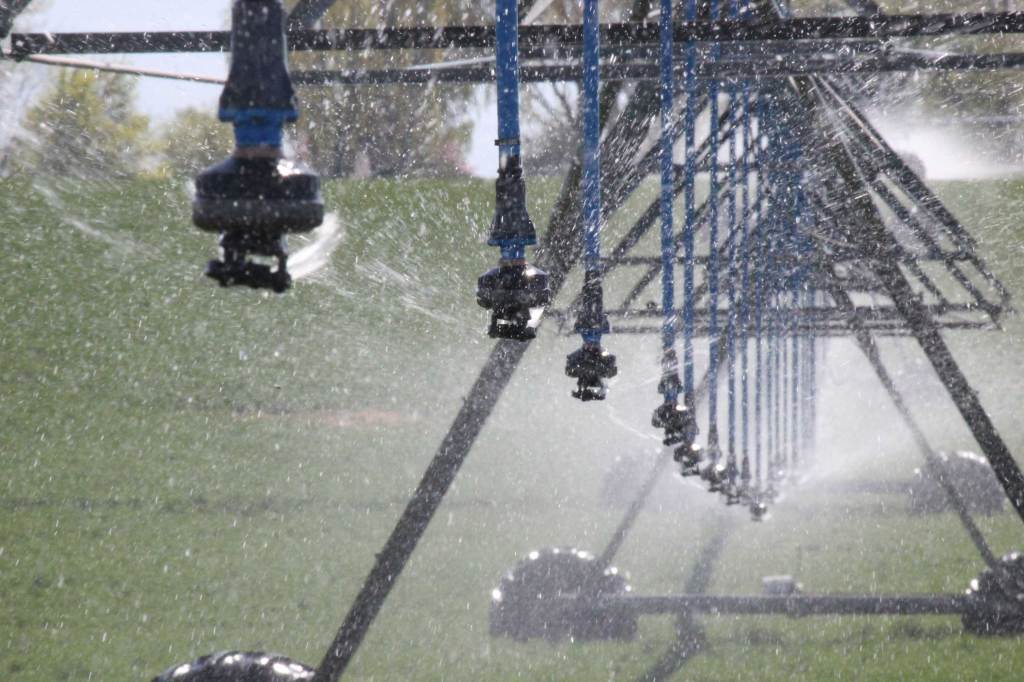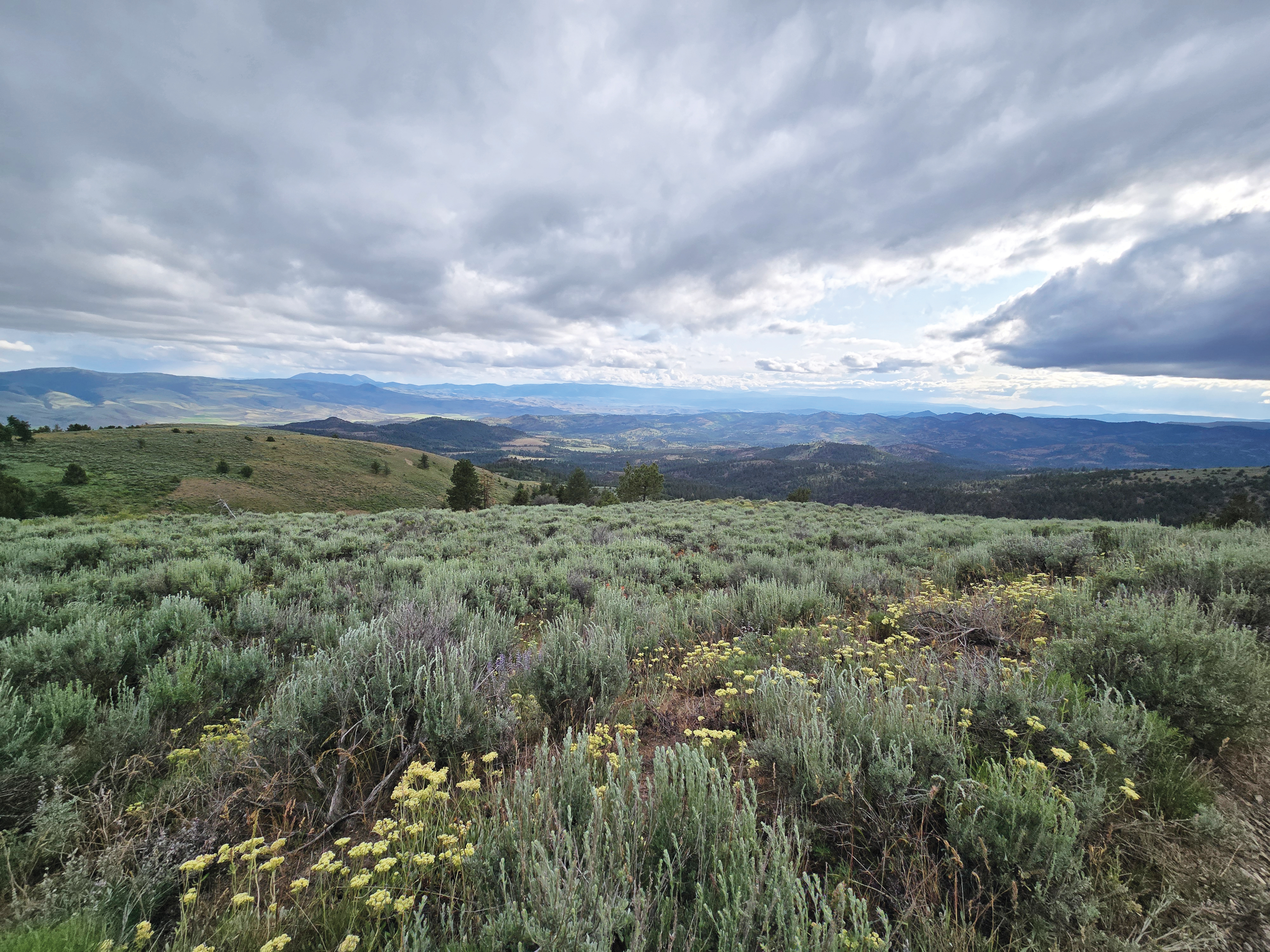Oregon water rights enforcement bill gains traction
Published 4:00 am Thursday, April 22, 2021

- A central pivot irrigation system applies water April 26, 2016, to a field of Kentucky bluegrass on a farm in the Sandridge area southwest of Alicel. A new bill in the Oregon House that would alter the process for enforcing Oregon water rights is gaining traction.
SALEM — A bill that would alter the process for enforcing Oregon water rights has gained traction after supporters scaled back changes that adversely affected junior irrigators.
The original version of House Bill 2244 would have partially eliminated the “automatic stay” provision of Oregon water law, under which junior irrigators can file lawsuits to prevent water shut-offs.
A revised version of the bill would retain the “automatic stay” provision but accelerate the legal process to avoid prolonged uncertainty about water rights enforcement.
“We know if we don’t handle these quickly, either the fish die or the crops die,” said Rep. Marty Wilde, D-Eugene.
A vote on HB 2244 is scheduled for the House floor on April 20 after the House Water Committee approved the bill 5-3 with a “do pass” recommendation.
The automatic stay provision has come under criticism in recent years by the Klamath Tribes, who’ve argued it’s effectively been used to thwart the enforcement of their “time immemorial” water rights.
Litigation takes longer than the irrigation season, allowing junior users to continue diverting water despite the tribes’ “water call” for enforcement action, according to critics.
The farm industry has defended the automatic stay as protecting due process for junior irrigators who disagree with the Oregon Water Resources Department’s findings that they’ve infringed on senior water rights.
For example, the automatic stay provision was invoked when groundwater irrigators disagreed with OWRD’s claims that wells were interfering with surface water flows.
Proposals to eliminate or curtail the automatic stay were debated during the 2019 and 2020 legislative sessions but died in committee upon adjournment.
The amended version of HB 2244 that’s headed for a House vote creates a special procedure for disputes related to in-stream water rights held by tribes and state agencies.
The automatic stay only becomes effective once the junior irrigator actually files a “proof of service” that OWRD was served with a lawsuit.
The agency must notify affected tribes within five days.
The OWRD may also override the automatic stay if it causes “substantial public harm” but the junior irrigator can challenge this denial in court within 21 days.
“That does put a little more burden on the junior who is petitioning but not an inappropriate one or a difficult one to meet,” Wilde said of the proposed procedure. “We’re not changing anyone’s substantive rights. It’s just about speeding up the process so that everyone gets a quicker answer.”






